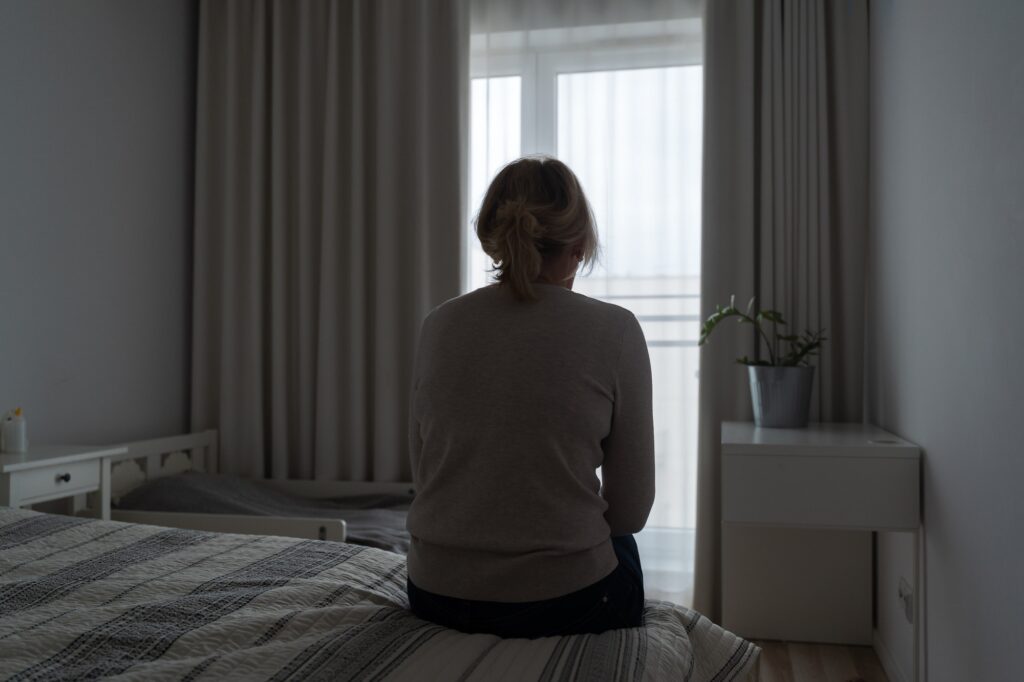Hey there! Have you ever felt that nervousness creeping in, or that fear of being judged in social situations? Trust me, you’re not alone. Millions of people, experience these feelings, and it’s called social anxiety disorder. It’s a real and challenging mental health issue that can really affect our daily lives.
But hey, don’t worry! There are ways to cope with social anxiety disorder. From seeking social support from family and friends to exploring therapies like cognitive behavioral therapy, we can take steps towards managing this condition. So, let’s dive in and explore the world of social anxiety disorder together, because understanding it is the first step towards finding ways to thrive in our social lives.
Remember, you’re not alone in this journey. Let’s navigate through it and find ways to conquer social anxiety disorder, one step at a time.

Understanding Social Anxiety
Social anxiety, also known as social phobia, is a common mental health condition that can have a significant impact on a person’s life. It is characterized by intense fear and discomfort in social situations, making activities like public speaking, meeting new people, or even being in a crowded place extremely challenging. As someone who has experienced social anxiety firsthand, I understand the impact it can have on one’s overall quality of life.
Living with social anxiety can be isolating and overwhelming. It can cause individuals to avoid social settings altogether or endure them with extreme distress. This avoidance can lead to missed opportunities for personal and professional growth, as well as strained relationships with family and friends. The effects of social isolation can be particularly harmful, as human connection and social support are crucial for our mental and emotional well-being.
Research has shown that social anxiety can be influenced by various factors. For example, it may be more common in younger adults who are navigating the challenges of forming new social relationships and finding their place in the world. Additionally, individuals with a family history of mental health issues may be more susceptible to developing social anxiety. Physical health and lifestyle factors, such as lack of physical activity or cognitive decline, can also contribute to the onset or exacerbation of social anxiety symptoms.
Fortunately, there are effective treatments available for social anxiety. Cognitive-behavioral therapy (CBT) has been shown to be particularly helpful in managing social phobia. This therapy focuses on identifying and challenging negative thought patterns and beliefs, as well as developing coping strategies to overcome social fears. Seeking support from a mental health professional can provide guidance and tools for managing social anxiety and improving overall well-being.
In my own experience, I have found that gradually exposing myself to social situations and practicing self-compassion has been instrumental in managing my social anxiety. Building a strong support system of close friends and loved ones who understand and support my journey has also made a significant difference.
It’s important to remember that social anxiety is a common struggle, and you are not alone. Taking small steps towards facing your fears and seeking professional help can make a world of difference in improving your social life and overall mental well-being. Remember, you are capable of growth and change, and there is hope for a brighter future.

Causes of Social Anxiety
Social anxiety disorder is a condition that affects many people, yet the exact cause remains unknown.
I understand the challenges social anxiety can bring. It’s important to know that you’re not alone in this experience. Many individuals, both young people and older adults, struggle with social anxiety and its effects on their daily lives. There are several risk factors that can contribute to the development of social anxiety disorder. These include:
- Family history of anxiety: If a family member has personally experienced anxiety, it may increase the likelihood of developing social anxiety disorder. This is because individuals may inherit certain genetic traits or learn maladaptive coping mechanisms from their relatives, which can contribute to the development of social anxiety.
- Traumatic experiences: Going through a traumatic event, such as persistent bullying or a highly humiliating experience, can significantly raise the risk of developing social anxiety. Trauma can have a lasting impact on an individual’s mental health, leading to heightened fear and anxiety in social situations.
- Low self-esteem: People with chronically low self-esteem and a negative self-image are more susceptible to social anxiety. When individuals have a poor perception of themselves and lack confidence in social interactions, they are more likely to experience intense anxiety and fear of judgment from others.
- Lack of social skills: Challenges in social situations and a lack of confidence in social interactions can contribute to the development of social anxiety disorder. Difficulties in understanding social cues, initiating or maintaining conversations, and forming meaningful connections can lead to increased social anxiety symptoms.
- Genetic predisposition: There may be a genetic component that influences the development of social anxiety disorder. Research suggests that certain genes may play a role in determining an individual’s susceptibility to anxiety disorders, including social anxiety.
- Environmental factors: Certain environmental factors, such as a stressful upbringing or social isolation, can contribute to the development of social anxiety. Growing up in a chronically stressful or unsupportive environment, or experiencing prolonged social isolation, can heighten an individual’s vulnerability to social anxiety.
- Cognitive factors: Negative thought patterns and irrational beliefs about social situations can contribute to the development of social anxiety disorder. Individuals with social anxiety often engage in excessive self-criticism, anticipate negative outcomes, and hold distorted views about their social performance, which perpetuates their anxiety symptoms.
- Coping mechanisms: Ineffective coping mechanisms, such as avoidance or excessive self-criticism, can exacerbate social anxiety. When individuals rely on avoidance strategies or engage in self-destructive behaviors to cope with their anxiety, it can reinforce their fears and make social situations even more challenging to navigate.
It’s important to note that social anxiety disorder can have a significant impact on mental health and overall well-being. It can lead to feelings of isolation, loneliness, and even depression.

Symptoms of Social Anxiety
Social anxiety disorder, a condition that affects human beings in the United States and the general population, can manifest in a variety of ways in the social world. The severity of symptoms may vary from person to person, and previous studies have shown that it can have physical symptoms such as heart palpitations, sweating, shaking, or nausea. Individuals with social anxiety may also experience difficulty speaking or trembling when faced with social situations, negative thoughts about oneself in relation to others, fear of being judged or humiliated, and difficulty making eye contact or engaging in conversation.
Research has shown that social anxiety can have negative impacts on mental health and well-being. It has been associated with a range of mental health disorders, including depressive symptoms, suicidal thoughts, and substance abuse. In addition, social anxiety can have physical health implications, with studies linking it to conditions such as coronary heart disease and high blood pressure.
The effects of social anxiety can be particularly pronounced in individuals who live in remote locations or rural areas, where there may be limited social opportunities and a lack of social contacts. The impact of social isolation and spending too much time alone can contribute to the symptoms of anxiety and have detrimental effects on mental health. Recognizing the importance of social connections and addressing social anxiety is crucial.
It is worth noting that social anxiety is not limited to specific age groups. It can affect individuals of all ages, including young people during their teenage years and older adults. The lack of social connections and feelings of isolation can have a significant impact on mental health and overall well-being. In fact, recent studies have highlighted the serious public health risks associated with social isolation and the importance of social connections in maintaining good mental health.
Overall, understanding the symptoms and effects of social anxiety disorder is crucial for individuals and the health care system. More research and studies are needed to further explore the impact of social anxiety on human beings and to develop effective interventions and support systems. In the real world, it is important to prioritize mental health and seek helpful information and resources to address the social and emotional needs of individuals experiencing social anxiety or related conditions.

The Role of Isolation: A Closer Look at Social Anxiety
Isolation, especially when experienced for prolonged periods, can have a significant impact on the development and worsening of social anxiety disorder. We are social creatures by nature, and our well-being is deeply connected to our interactions with others. Let’s explore the different types of isolation that can contribute to social anxiety and the effects they can have on our mental health.
Social Isolation: Feeling Disconnected and Alone
Have you ever found yourself in a new place, far away from friends and family, or perhaps experienced a sense of rejection from others? These situations can lead to social isolation, where an individual lacks meaningful connections with others. It’s a lonely feeling that can trigger a cascade of negative thoughts, questioning our self-worth and fueling anxiety in social situations. The longing for a sense of belonging becomes stronger, and we yearn for genuine connections to alleviate our feelings of loneliness.
Self-Imposed Isolation: The Fear of Judgment
Sometimes, we consciously choose to isolate ourselves from others. This could stem from low self-esteem or a deep fear of being judged or rejected. Initially, self-imposed isolation might seem like a protective measure, providing a sense of safety and control. However, it often leads to increased anxiety and avoidance of social situations. We become trapped in a cycle of fear, missing out on opportunities for growth and connection.
Forced Isolation: Coping with External Circumstances
In the past year, we have all experienced the profound impact of forced isolation due to circumstances beyond our control, such as the ongoing pandemic. This type of isolation poses unique challenges for individuals with social anxiety disorder. It amplifies feelings of loneliness, fear, and uncertainty. The absence of social interactions can take a toll on our mental health, exacerbating symptoms of anxiety and even leading to thoughts of self-harm. It’s crucial to recognize the impact of forced isolation and seek support during these difficult times.

Coping with Social Anxiety
If you are struggling with social anxiety, it’s important to know that there is hope and help available. Here are some practical tips for coping with this condition:
1. Seek professional help: If you’re struggling with social anxiety, it can be incredibly beneficial to seek the assistance of a therapist or counselor who specializes in anxiety disorders. They have the expertise to provide you with valuable support, guidance, and evidence-based techniques specifically tailored to manage your social anxiety effectively. With their help, you can develop coping strategies and build the necessary skills to navigate social situations with confidence.
2. Practice relaxation techniques: Engaging in regular relaxation exercises can work wonders in reducing feelings of anxiety. Consider incorporating techniques such as deep breathing, meditation, and muscle relaxation into your daily routine. These practices can help you calm both your mind and body, promoting a sense of peace and tranquility when facing social situations that may trigger anxiety. By dedicating time to these exercises, you can cultivate a greater sense of self-awareness and develop effective tools to manage your social anxiety.
3. Challenge negative thoughts: Negative and irrational thoughts often fuel social anxiety. It’s important to pay attention to your thoughts in social situations and challenge them with rational thinking. By questioning the validity of these negative thoughts and replacing them with more realistic and positive ones, you can gradually reframe your mindset and alleviate anxiety. This process takes time and practice, but with persistence, you can reshape the way you perceive social interactions and build a more positive outlook.
4. Start small: Instead of diving headfirst into a large social gathering, consider starting with smaller events or meeting up with one person at a time. This approach allows you to gradually expose yourself to social situations, build confidence, and develop social skills at a pace that feels comfortable for you. For example, you could begin by attending a small group activity or scheduling coffee dates with close friends. Taking these smaller steps allows you to acclimate to social settings and gradually expand your comfort zone.
5. Build a support network: Surround yourself with understanding and supportive friends and family members who can offer encouragement and a listening ear. Having a strong support network can provide reassurance, boost your self-esteem, and make the journey of overcoming social anxiety feel less daunting. Consider reaching out to people who have experienced similar challenges or joining support groups where you can share your experiences and learn from others. Connecting with individuals who empathize with your struggles can provide a sense of belonging and validation.
Remember, overcoming social anxiety takes time and patience. By implementing these strategies and seeking support, you can gradually develop the skills and confidence needed to navigate social situations with greater ease and enjoyment. With dedication and perseverance, you can build a fulfilling social life and experience the joy of connecting with others on a deeper level.
The Power of Connection
While isolation may contribute to social anxiety, the opposite is also true. Building and maintaining meaningful connections with others is key in managing and overcoming social anxiety disorder. It takes courage to reach out and connect with others, but the benefits are worth it. Remember, you are not alone in your struggles, and there is a community of individuals who understand and can support you.
In conclusion, while isolation may play a role in the development of social anxiety disorder, it is not the sole cause. By understanding this condition and seeking support, individuals with social anxiety can learn to cope and thrive in social situations. Remember to be kind to yourself and never give up on building connections with others. After all, we are social beings who thrive on human connection. So reach out, connect, and be part of a community that supports one another through struggles and triumphs alike. Keep in mind that you are more than your anxiety and have the power to overcome it. Don’t let social anxiety hold you back from living a fulfilling life. Take the first step today towards building a stronger, more connected and confident version of yourself.
Socially Qurky
Welcome to Socially Quirky! Here's a cozy corner for all you introverts to explore, laugh, and grow. We’re all about celebrating the quiet strength within us. We’ve got lifestyle tips, fun stuff, and tools tailor-made to suit your introvert lifestyle. So, let’s embrace the quiet, find our unique spark, and kick back with folks who get us. Can’t wait for you to join our tribe at Socially Quirky!










